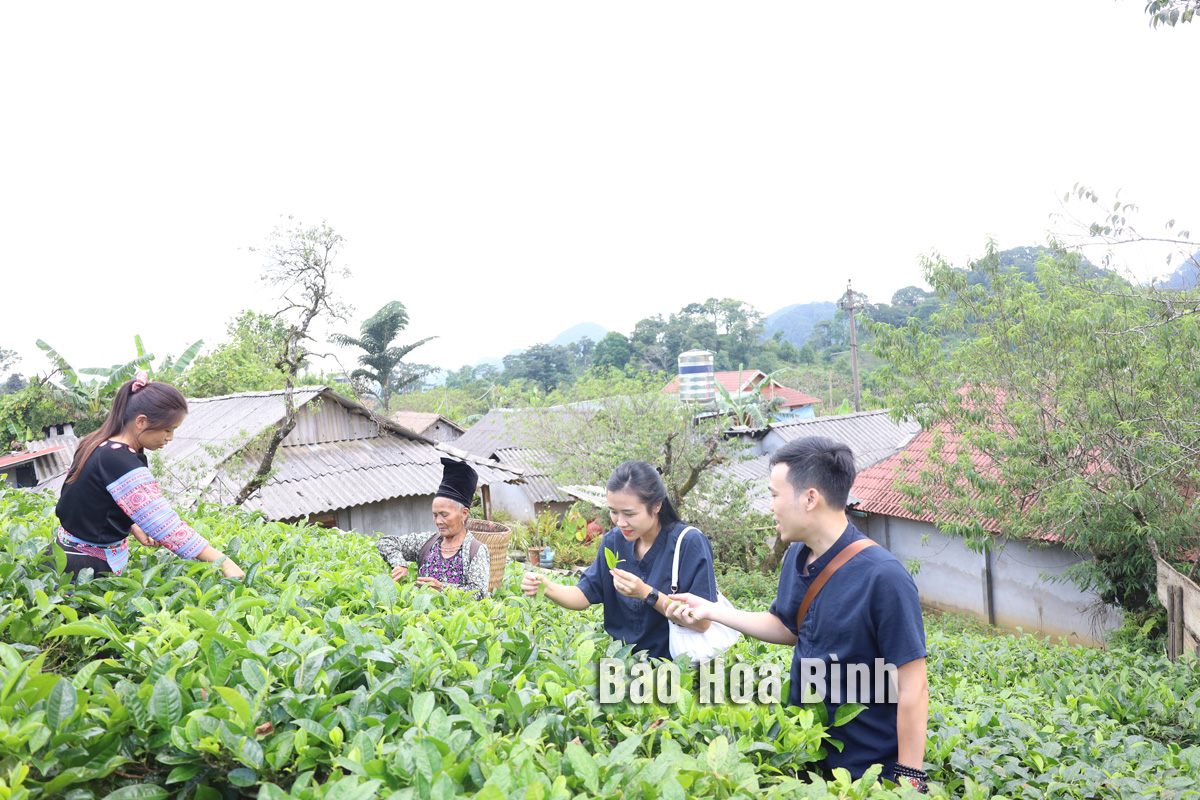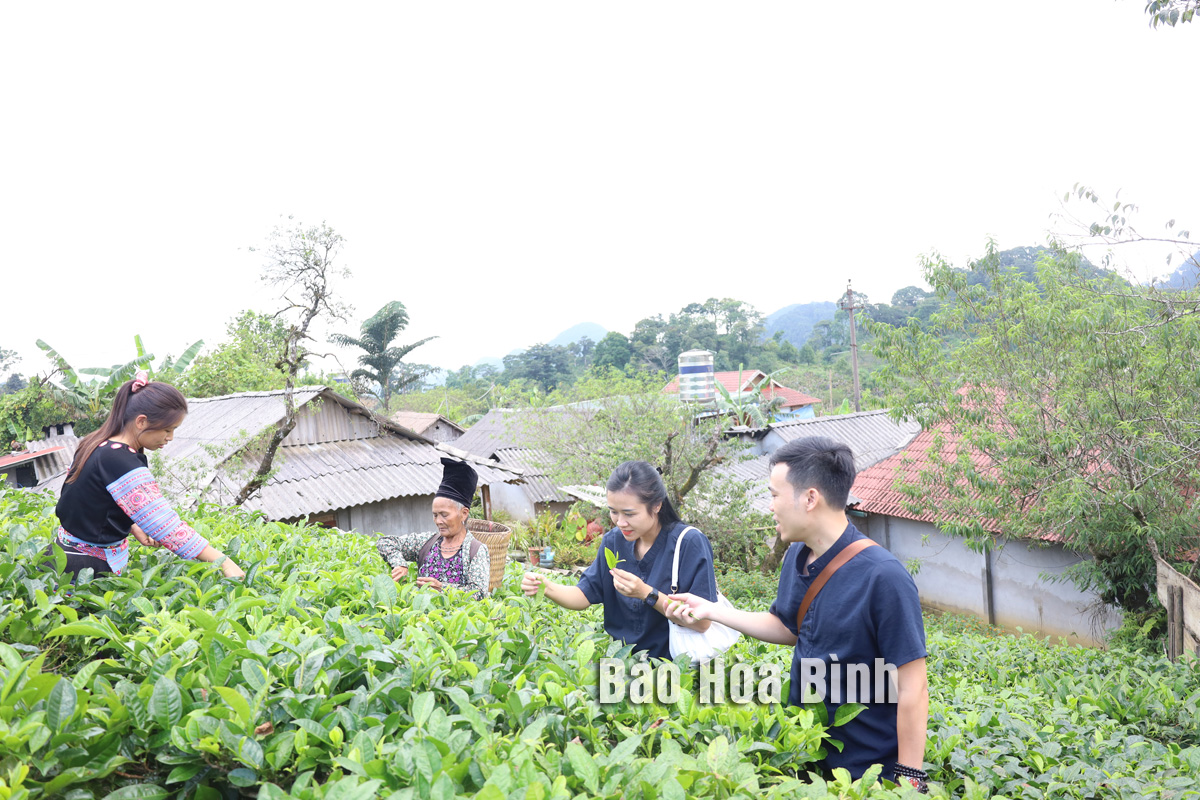
People in Cha Day village in Pa Co commune, Mai Chau district of Hoa Binh province, have been taking advantage of natural conditions and traditional cultural values to develop community-based tourism which has helped improve their quality of life.
Tourists join in picking tea leaves with local people
in Cha Day village.
In the past, Mong people in Pa Co commune mostly
earned their living by growing corn, paddy and raising cattle and poultry. Six years ago, Phang A Pao, a local resident,
was the first person to start community-based tourism model in the commune. Pao, who is now head of a group of farmers who
provide Mong homestay service, said that since he started his tourism business,
he has learnt many things. He understood that preserving the natural
landscape and cultural identity can help people from ethnic groups to develop,
and escape from poverty.
So far, ten families in the village have joined
in developing community-based tourism in association with preserving and
promoting tangible and intangible cultural values.
In the village, the homestay service providers
have still preserved traditional houses made of natural materials and decorated
in the style of Mong people. New tourism products have been exploited such as
cultural space of the Mong people, traditional night market, and camping
combined with cloud watching in the mountains, which helped attract domestic
and international visitors.
Anline, a visitor from France, said that she was
impressed when she visited "Mong Space" and was told interesting
stories about traditional costumes, patterns on fabric, and long preserved
items. She was also guided to make paper, paint with beeswax and relax with
herbal bath.
After 6 years of implementing the
community-based tourism models, Cha Day village has become one of the popular
destinations for domestic and international tourists. While running tourism
business, households in the village are highly aware of the importance of
preserving local culture, particularly traditional costumes, cuisine, and
festivals.
Up to now, the "Homestay Mong and
experience Pa Co agriculture" has gathered 35 members with six homestays.
Houses that provide homestay service got an average annual income of 100
million VND (4,000 USD).
A diverse chain of eco-tourism and resort destinations concentrated in Hoa Binh city and the districts of Tan Lac, Da Bac, and Luong Son… Along with the launch of several key high-quality resort tourism projects, these developments have reshaped the landscape and enhanced the appeal of Hoa Binh as a travel destination.
Boasting diverse terrain, a mild climate, and rich natural resources, Cao Phong district is increasingly asserting its place on Vietnam’s tourism map, attracting both domestic and foreign visitors. The district is renowned for its stunning landscapes, majestic mountains, a crystal-clear hydropower lake, and the unique cultural identity of local ethnic groups.
With its pristine landscapes, unique cultural heritage of Muong ethnic minority, and an expanding range of visitor experiences, Tan Lac district of Hoa Binh has fast become a captivating destination for both domestic and international tourists.
Until now, Sung village in Cao Son commune, Da Bac district remains the only Dao ethnic community in Hoa Binh province to develop a community-based tourism model. Beyond its untouched natural landscapes, cultural identity serves as the cornerstone attraction for visitors.
Alongside the diverse cultural identities of the Kinh, Muong, Tay, Thai, Dao, and Mong ethnic people, Hoa Binh province is also renowned as the "capital" of the northwestern Vietnamese cuisine, offering unique and distinctive dishes. At festivals, during Lunar New Year (Tet), or on significant family or community occasions, special dishes are prepared, leaving a lasting impression on visitors.
A Phong Linh (Yellow Tabebuia) flower garden in Thang village, Thach Yen commune, Cao Phong district is currently in full bloom, drawing a large number of visitors.



